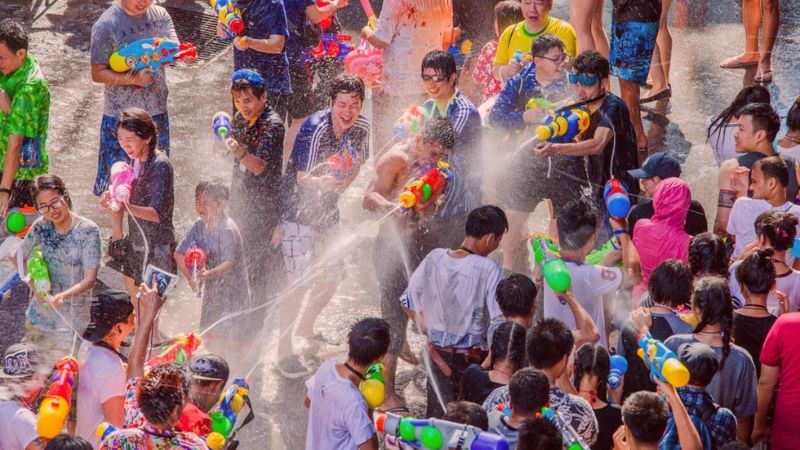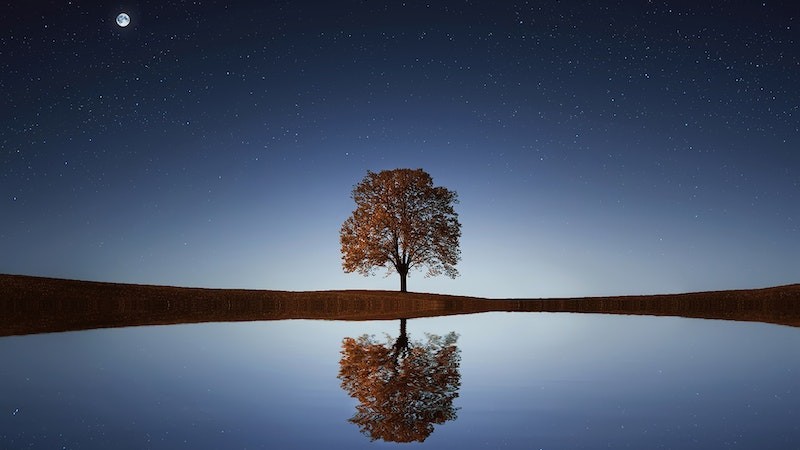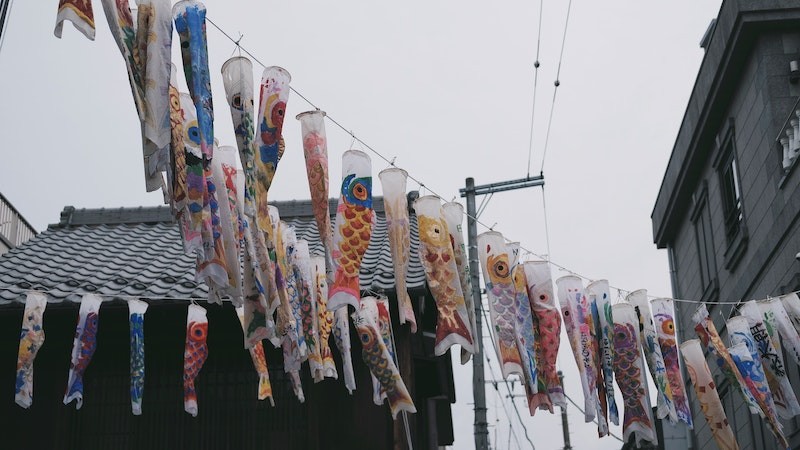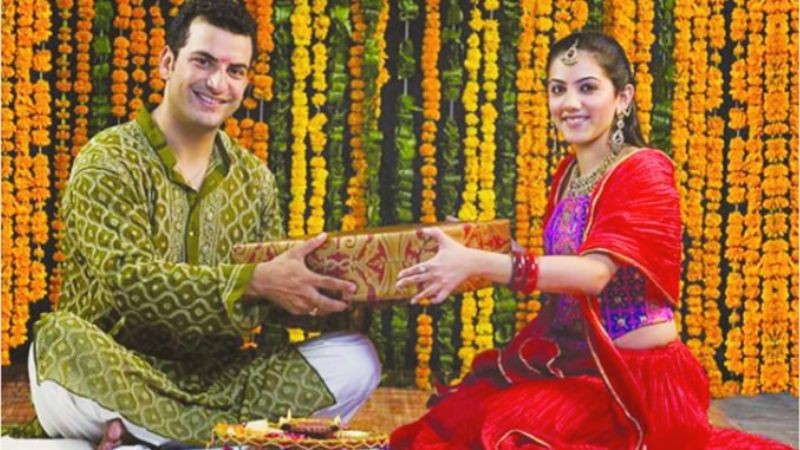
What is the Songkran Festival?
Thailand's most well-known holiday is Songkran. Songkran is a Sanskrit word that means "passing" or "approaching." This festival, a significant occasion on the Buddhist calendar, ushers in the customary Thai New Year.
According to legend, the celebration was inspired by a Hindu spring festival in ancient India to celebrate the beginning of the new agricultural season. Other Southeast Asian nations also observe a traditional new year's festival, but Songkran in Thailand is the most well-known worldwide.
Songkran is a holiday celebrated throughout Thailand from April 13 to April 15. It is a national holiday there. But the celebrations can go on for up to a week in some places.
The nation celebrates Songkran, but Bangkok, Pattaya, and Chiang Mai have the most enthusiasm. Khao San Road and Silom are the hubs of activity in Bangkok.
Songkran Festival - All Quick Overview
- Time / Date: April 13 - April 15
- Category: Festival
- Where It’s Marked: Thailand
- Why It’s Marked: The festival of Songkran celebrates the Thai new year.
History Of Songkran Festival
Songkran may appear like a massive celebration, but it has long had traditions that have kept Thais together ever since. The history of Songkran is inspired by legend, folklore, and geography. Let's shed light on all of them!
A Buddhist narrative is the source of the Songkran celebration itself. According to legend, a Buddhist God named Kadilla Brahm supposedly lost a contest with a youngster.
The deity left the man's head with his seven daughters instead of having him cut off the head because he lost the bet with the child. The daughters carried the head with numerous faces on a platter every New Year's Day, switching off. The seven daughters stand in for the seven days of the week during this event, now known as Songkran.
The Sanskrit word for cleaning or washing gave rise to the name "Songkran." History says the Khmers initially observed Songkran. The Khmers believed bathing would cleanse their souls and grant them passage back to their country, Cambodia.
According to geography, the Sanskrit term for Songkran is derived from the idea of the sun changing zodiac signs. So, every year there are twelve Songkrans. The Great Songkran is different from the others because it is celebrated when the sun moves into the sign of Aries the Ram. The specific incident had a close connection to the Vernal Equinox as well.
In the past, it was widespread to celebrate New Year's during the time of the Vernal Equinox. The Holi Festival in India, Ching Ming in China, and Easter in Christianity are all similar to Songkran's celebrations.
Initially determined by astrological calculations, the date is now April 13. If some of the events fall on a weekend, the festival might be extended.
How to Celebrate the Songkran Festival
Outsiders can look at Songkran as a country-wide water brawl. In the warmest month of the year, people nevertheless head outside to enjoy the weather. In the spirit of good fun and celebration, Thai businesses and schools close so that family, friends, neighbors, and even strangers can throw water at one another in the streets. But Songkran is so much more!
Let's go through the traditions and celebrations of Songkran!
1. Cleansing Inside Out!
Cleaning is done in homes, offices, schools, and other public places as people prepare for the new year. They have family members who have relocated and are joining them for a holiday to spend time with loved ones.
To symbolize cleanliness and good fortune, people pour clean or fragrant water over sculptures of the Buddha, the founder of Buddhism. To express their gratitude and desire for blessings for the upcoming year, younger people also pour water into the hands of elderly family members and friends.
Some tourists bring sand to the temples to replenish the sand worn away over time by their shoes. They deposit the sand in mounds, or stupas, on the ground, which are later adorned with flowers and flags in vibrant colors.
2. The Festival of Three Days
(a) Day 1: April 13
On the first day of Songkran, April 13, people all around Thailand wash away the previous year's bad luck by cleaning their homes and public spaces like temples and schools.
An ancient tradition, Rod Nam Dum Hua, is performed on Songkran's first day, a day to honor the elderly. As a demonstration of humility and to solicit their blessings, young people participate in this practice by pouring water with rose and jasmine scents into the palms or feet of their parents or wise elders.
(b) Day 2: April 14
The second day of Songkran is known as Wan Nao or family day. The night before, people will make offerings to monks and temples. It's also a time when younger generations show their respect for their elders by making special drinks like rose and jasmine water and Nam Op, fragrant water, to use in a ritual known as Rot Nam Dam Hua, in which they wash their parents' feet. In exchange, the parents grant the kids their blessings and often present them with a jasmine floral garland.
In addition, many individuals may build sand stupas, or "Chedi Sai," around their local temple as a personal pagoda and a lighthearted approach to making religious offerings as a group.
(c) Day 3: April 15
On April 15, the third day of Songkran, also known as Wan Palawan, individuals frequently start the day by going to their local temple to provide food and clothing to the monks, who then pray for them. They also participate in other rites, which are thought to bring luck for the coming year.
3. Water, water, everywhere!
Every April, Thailand celebrates its New Year with Songkran, the wettest event on earth. It is the biggest water festival in the world, where everyone congregates to get wet, including kids, adults, friends, and strangers.
The act of dousing someone in water symbolizes purification and cleanliness. The water removes the previous year's problems, misfortune, and complaints. A fresh start is given to the new year.
Songkran is strongly founded in tradition, even though to foreigners, it is mostly known as the "Water Festival." It's one of the most significant occasions in the Buddhist calendar.
Water Fight
During Songkran, huge water fights occur in cities and towns around Thailand.
People navigate the streets in pickup trucks carrying massive water jugs. Children cover one another's faces with clay or chalk. Children and adults line the streets, brandishing water hoses and cannons, dousing everybody in their path with water.
People gather squirt guns, water in buckets, and anything else they can find, then take to the streets to spray each other around in amusement. It's good that April is one of Thailand's warmest months!
Originally a New Year's celebration, Songkran has become a huge show of entertaining water fights in current times.
Countries that Observe Songkran Festival
Songkran is a three-day festival that originated in Thailand.
It has now spread throughout Southeast Asia to Cambodia, Laos, Myanmar, Sri Lanka, and India(North). It is also celebrated in Xishuangbanna in China and some regions of Vietnam.
There are still ways for expats in nations like the U.S., the U.K., or Australia to celebrate with their loved ones. In addition to the several unique Songkran festivals, people can join in the fun by joining the local immigrant communities and shopping at local markets for the items they need for the local cuisine.
1. Songkran in Cambodia
Songkran shares a common ancestor with Chaul Chnam Thmey in Cambodia. But the water aspect is less well-liked there than it is in Thailand. Cambodians dress up, burn incense, pray to Buddha, give to charity, play games, and honor their elders for three days.
2. Songkran in Laos
Songkran is known as Pi Mai and is observed in Laos from April 13 to 16. Young and elderly go to temples to pray and have fun, cleaning the house and offering flowers or water to Buddha pictures.
3. Songkran in India
In northeast India, it is known as Sangken. But Holi, a sibling water festival celebration, frequently overshadows it. Gift-exchanging is customary during this three-day holiday, and there are communal meals and prayers in addition to the water-sprinkling of Buddha statues.
4. Songkran in the United States of America
Songkran is celebrated with festivity in the U.S. Cities with sizable populations of Sri Lankans, Thais, Burmese, Laotians, and Cambodians frequently celebrate Songkran. A new year's party is held at the University of Washington in Seattle by the Khmer Student Association.
5. Songkran in Australia
In several regions of Australia, people celebrate Songkran. The renowned festival is celebrated at the Wat Pa Buddharangsee Buddhist Temple in Leumeah, New South Wales, a suburb of Sydney. Prayers, dance festivals, water fights, and food vendors serving delicious cuisine from Thailand, Bangladesh (CHT), Burma, Cambodia, Laos, Sri Lanka, and Malaysia are all part of the event, which draws thousands of visitors each year.
Interesting Facts About Songkran Festival
- Until 1888, when it was changed to the set date of April 1, Songkran was the recognized New Year. Eventually, this date was changed to January 1, but not until 1940.
- It's vital to add a customarily scented perfume Nam Ob to the water in which the statue of Buddha is bathed.
- On Songkran, Mr. and Miss Songkran pageants are held! Men and women dress in stunning traditional attire that reflects their region and culture. The competition does not include bikinis, unlike Western pageants!
- The duration of the day and night is equal during the period of Songkran.
Unique Songkran Festival Celebration Ideas
Songkran has one of the most remarkable traditions for celebrating the festival. Additionally, there are many fun elements to experience on this holiday.
So why not spend this wonderful day having fun and experiencing beautiful things?
- Get blessings from Buddhist monks.
- Explore the city's many art exhibits for more sources of inspiration.
- Take part in the lively, traditional Thai fun.
- Enter the pool and get drowned under the scorching sun!
- Dance like nobody's watching at Songkran music events.!
- Visit the Elephant Sanctuary for a truly "Wild" Songkran day!
- After dancing and drenching yourself in water all day, cool down at Bangkok's top bars.
Songkran Festival Quotes
“I wish Lord Buddha shower his love and blessings on you and your family on the auspicious occasion of Songkran. I wish all your dreams come true, all your problems get solved and you enjoy a blessed year. Warm wishes to you on Songkran!!”
"As the year ends, let us look forward to a year full of joy, fun, health, and prosperity. May the showers of water wash away all your problems and sorrows. Let the coolness and positivity of Songkran spread in your life and make this coming year more blessed for you. Happy Songkran Festival!"
FAQ
1. What is Rod Nam Dum Hua?
It has an antiquated tradition from Northern Thailand. Historically, in the North, Rod Nam Dum Hua meant to "ask for forgiveness and blessing," whereas Rod Nam meant to bathe one's entire body. In Lanna, the term "dam Hua" refers to the act of "washing hair" using kaffir lime leaves. Later, other parts of Thailand adopted this tradition. It is also thought to wash away bad things from life and welcome good luck in addition to praying for blessings.
2. What is Wan Nao?
On April 14, when the sun moves between Pisces and Aires, people celebrate Wan Nao, the traditional Thai New Year's Eve. On Wan Nao, many Buddhists visit their temples to construct sand chedis, one of Songkran's most formal rites (a sand castle built to resemble a Buddhist temple).
3. Is Songkran a Religious Festival?
Songkran is a part of Thai culture that spans thousands of years and includes this significant Buddhist religious festival.
Songkran Festival Observances
| Year | Weekday | Date | Name | Holiday Type |
|---|---|---|---|---|
| 2023 | Thu | 13 Apr | Songkran Festival | Public |
| 2024 | Sat | 13 Apr | Songkran Festival | Public |
| 2025 | Sun | 13 Apr | Songkran Festival | Public |
| 2026 | Mon | 13 Apr | Songkran Festival | Public |
| 2027 | Tue | 13 Apr | Songkran Festival | Public |
We constantly update the dates of holidays that keep changing every year. However, while we revise and change some dates to be accurate, if you find any errors, kindly inform us . That will mean a lot to us.



